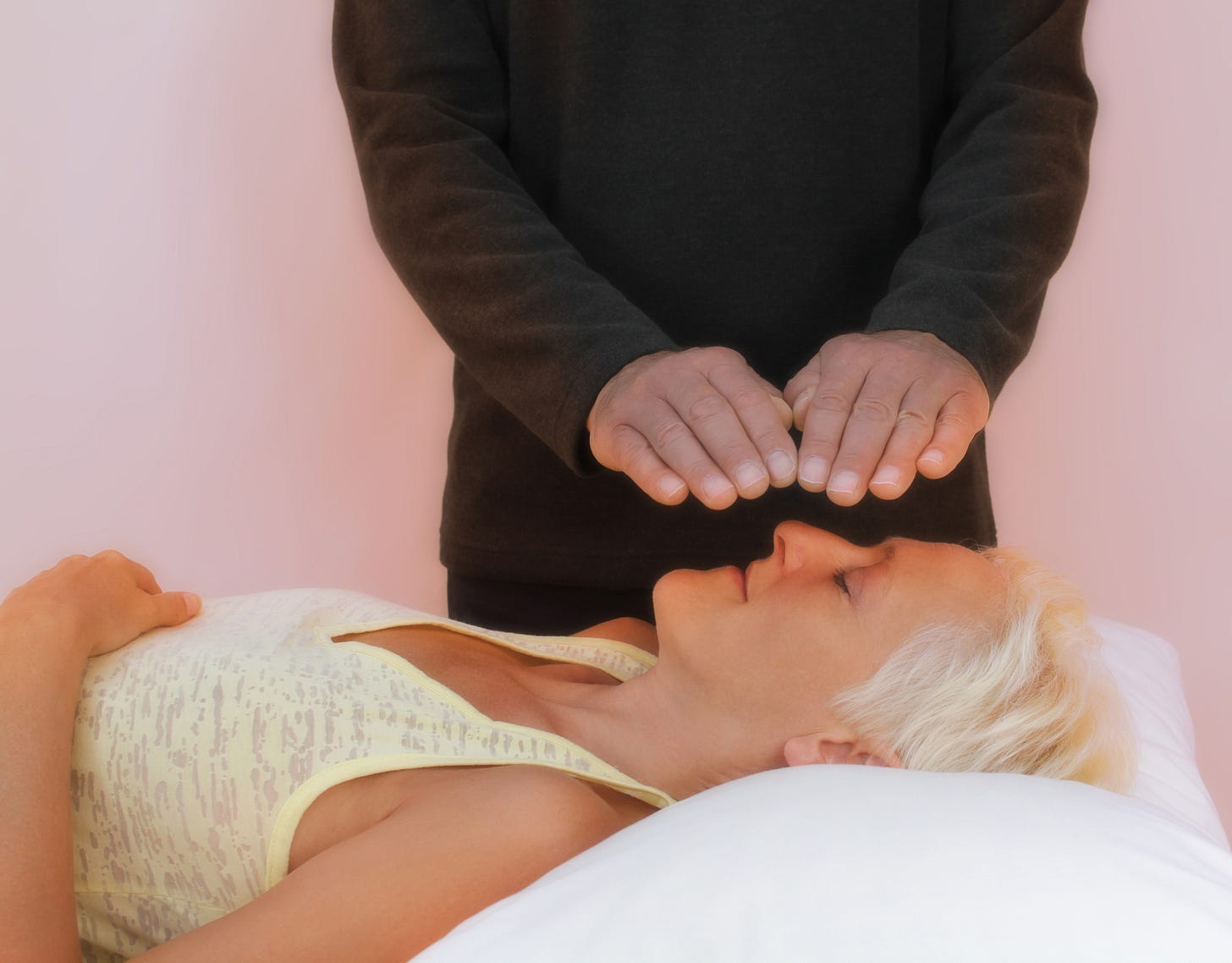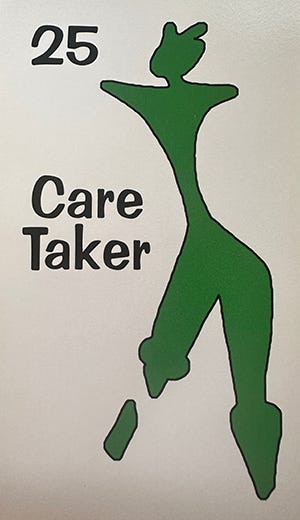Caring For the Caretaker
I felt stuck on what to write about other than mentioning the products and services we offer. When folks came into our brick-and-mortar store, we usually talked about more than just whatever they happened to be buying and this blog carries on that intention and practice. I want to be more than just a person who focuses on selling things.
Since nothing was coming to me for a blog entry, yesterday, I reached for a set of oracle cards that I enjoy, Awareness Cards. This is a deck that is out of print that a friend recently passed on to me. Yesterday, I drew this:
At first, I thought it meant I should write a post on the value of silence, so I did that. It was a perfectly respectable column, but as I reread it to edit, I realized that it was one I had written many times before and if I got bored reading it, y’all probably would as well.
Then it dawned on me in my hubris that perhaps the card was telling ME to be silent and so I was silent.
Today, I consulted the same deck and got this card: Care Taker. Immediately, I thought of how many of us consciously or unconsciously, willingly or unwillingly, find ourselves in the role of the caregiver. Whether it is childcare, elder care, a health care career, care of a disabled person, or care of a partner or friend, the role of the caretaker is both rewarding and exhausting.
When we think of a caregiver, most of us envision physically taking care of someone, but often the role we fall into is being someone’s emotional caretaker. While physical caretaking is objective and somewhat measurable, the work of emotional caretaking is an interesting sliding scale that asks us to balance compassion with healthy boundaries.
Whether we are emotional, physical, or even financial support for someone else, it does take its toll and it becomes essential that we find ways to recharge ourselves. If we do not, it we are at risk for using unhealthy coping strategies to balance out the deficit created by intense giving.
I am often surprised that many people who come to me for energy work and cleansings are caretakers who do not have and/or have never had anyone take care of them. Some have been the caretaker since they were little children and don’t know how to be anything else.
Ideally, we would have a daisy chain of shoulder massages where we all take care of one another and no one feels a lack of support. Unfortunately, that is rarely the case. Most often, I see people who are depleted, exhausted, and wondering what is so wrong with them that they can’t keep going even though they are running on empty.
How is this sustainable? The answer is simple: it isn’t.
Elder care is especially difficult because if things proceed “normally,” children get older and (we hope) smarter and more capable and need our help less than they do when they are small. If things proceed “normally,” when an elder parent needs our care, we either see them through until the end or we suffer through the gut-wrenching decision to pass off their essential daily care to professionals.
Even those who thrive on being “givers” must find ways to fortify themselves to continue for the long-term. We all know people, and may be one of them, who define themselves by their ability to give to nearly superhuman degrees. The energy to do so must come from somewhere and while the high that comes from helping others is rewarding, it is also fickle.
No matter what kind of caregiver a person might be, respite care is essential. We need to breathe, to heal, and to refill our resources. This is not a luxury. It is not selfish. It is vital.
How often do we track where our energy goes and to whom it flows? Aside from obvious and structured caregiving, how much energy goes into the subtleties of support? When a person is always the one to fix any situation, when a person is the one everyone goes to with their problems, when a person bears the emotional brunt of their interpersonal relationships, when a person is the whipping boy who absorbs everyone’s rage and fear and insecurity, that person will eventually break down just as surely as those who are formal caregivers.
“There is just not enough time in the day.” “If I weren’t so drained, sure, I would find a support system, but who has that kind of energy?” “No, no, I’ve got it. I’m OK.” “Here, let me just do it myself. It’s faster.” “It’s just a cold. I can work through it.” “Lots of people have it worse than I do.”
Get your spiritual cleansings. Stay grounded. Drink lots of fluids. Get good sleep. Accept help when it is offered. Find help if it isn’t offered. Ask about available resources. Get massages. Cry when you need to. Cling to the love you feel but understand your human limitations. Breathe good air. Wash your hands and your face. Nourish your body. Take necessary medications and supplements. Use the good china. Take breaks. Stretch your muscles. Do something every day that serves no purpose other than bringing you joy.
Who takes care of the caretakers? You do.
Another aspect of that card is the odd division, making “caretaker” two words, becoming “care taker.”
Do exactly that. Take care.









